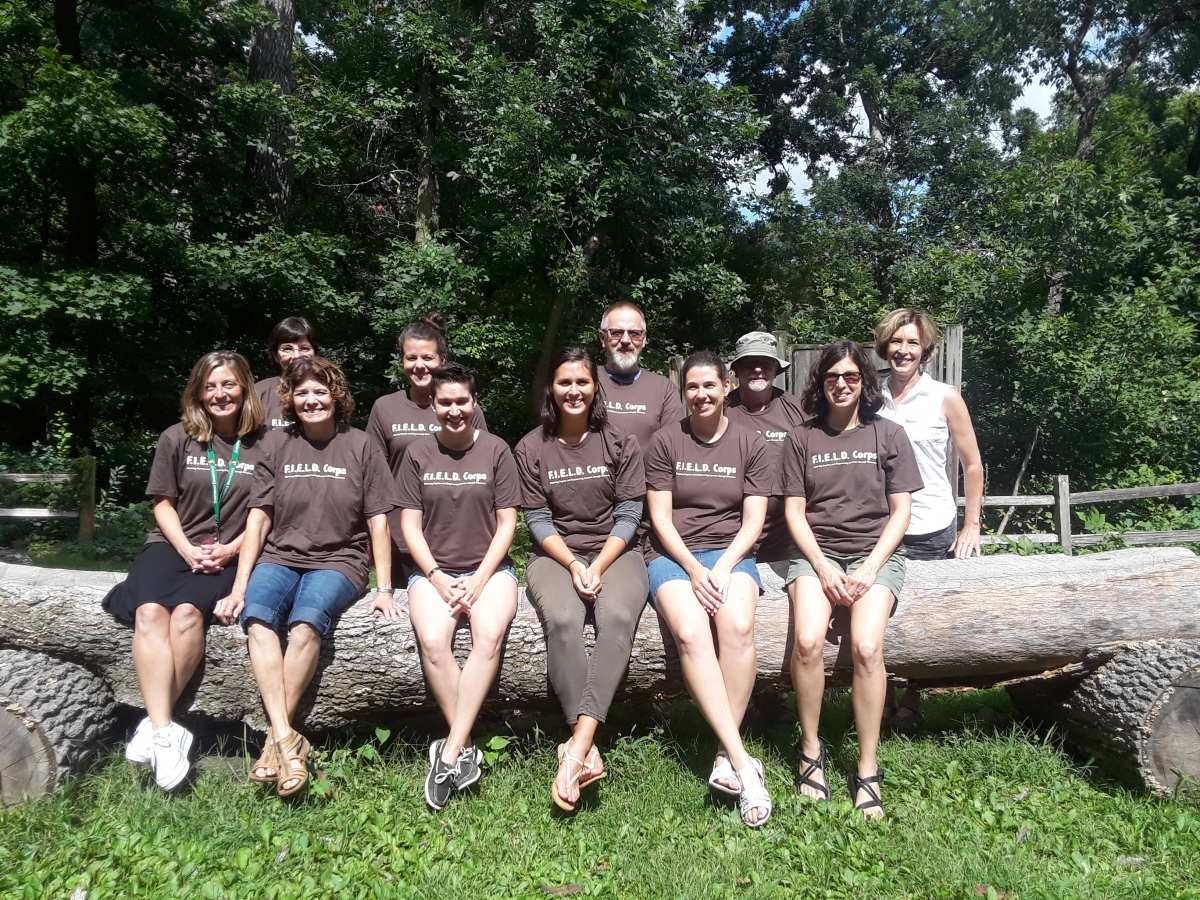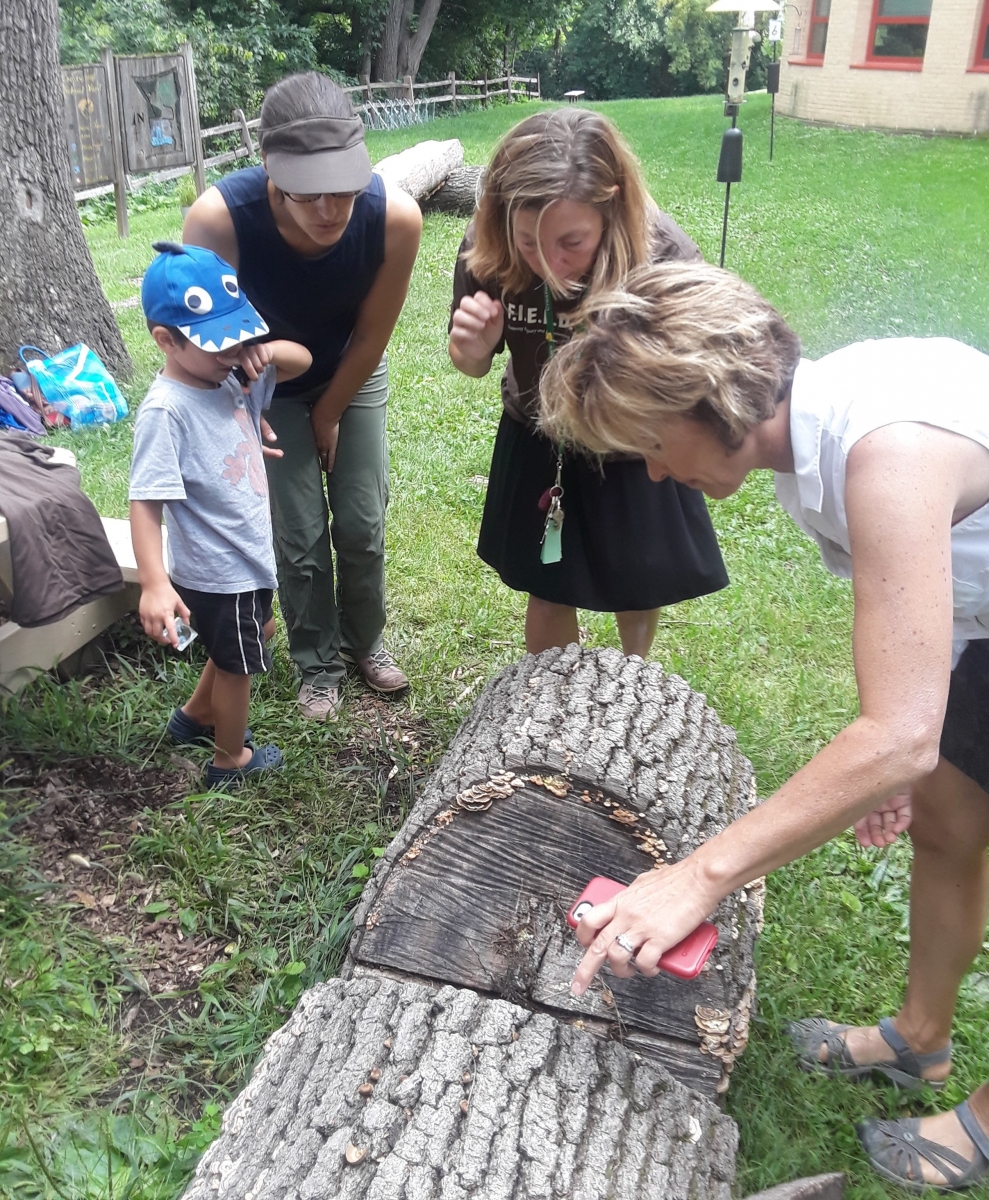While outdoor learning has been a core part of the culture at Crestwood Elementary School in Madison for more than 30 years, a team of teachers has been working to ensure it remains an integral part of academics for years to come.
A team of nine teachers and instructional support staff from each grade level developed a curricular framework to take learning outside on their school grounds each week throughout the academic year. Volunteers at Crestwood have been taking classes outside for years; however, the lessons were not always an integrated part of the curriculum. This new approach embeds learning experiences within science, social studies, and writing units of study to support identified learning targets. This framework also supports the implementation of Wisconsin’s Standards for Environmental Literacy and Sustainability that were adopted by the State Superintendent in May 2018.

The Wisconsin Green Schools Network “F.I.E.L.D. Corps” model is designed to build capacity for environmental education, developing classroom teachers’ knowledge and skills to deliver these experiences over time rather than having to rely on outside resources. “F.I.E.L.D.” stands for “Fostering Inquiry and Engaging Learners through Discovery” and more than twenty schools in the state have used this model over the past 16 years.
“Environmental education is not something that is ‘one more thing’ to add to teachers’ plates,” Sandy Benton, Wisconsin Green Schools Network Director of School Services and member of the standards-writing team explained. “Using a place-based approach to learning provides rich opportunities to truly engage students in learning. It makes learning in any content area more meaningful to students. Environmental education isn’t a ‘what;’ it is a ‘how.’” Benton coached the Crestwood team through the framework development over the summer and provides ongoing support for teachers throughout the school year.
Each grade level developed units with weekly plans for outdoor, standard-based, place-based learning experiences. This means each of the 328 K-5 students will receive 36 high-quality, inquiry-based lessons. The annual collective impact for all students is nearly 12,000 hours of instruction outdoors!

Financial support for this project came from the Wisconsin Green Schools Network, Natural Resources Foundation of Wisconsin, and LEAF–Wisconsin’s K-12 Forestry Education Program at the Wisconsin Center for Environmental Education.